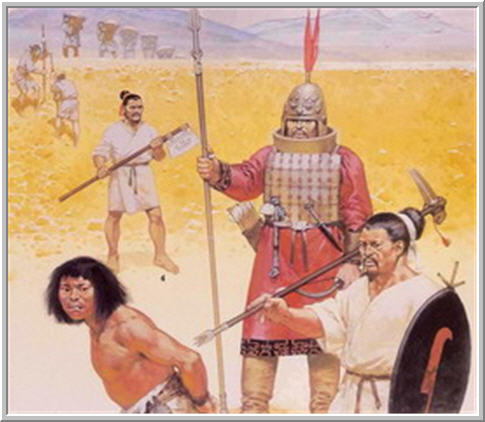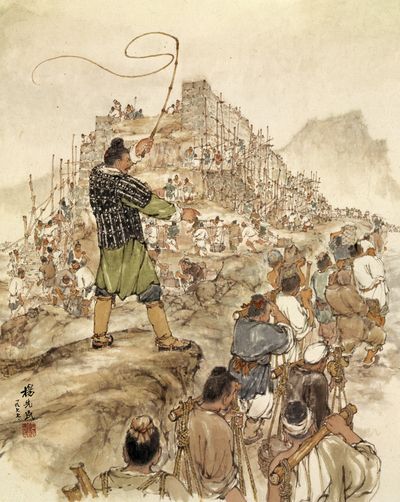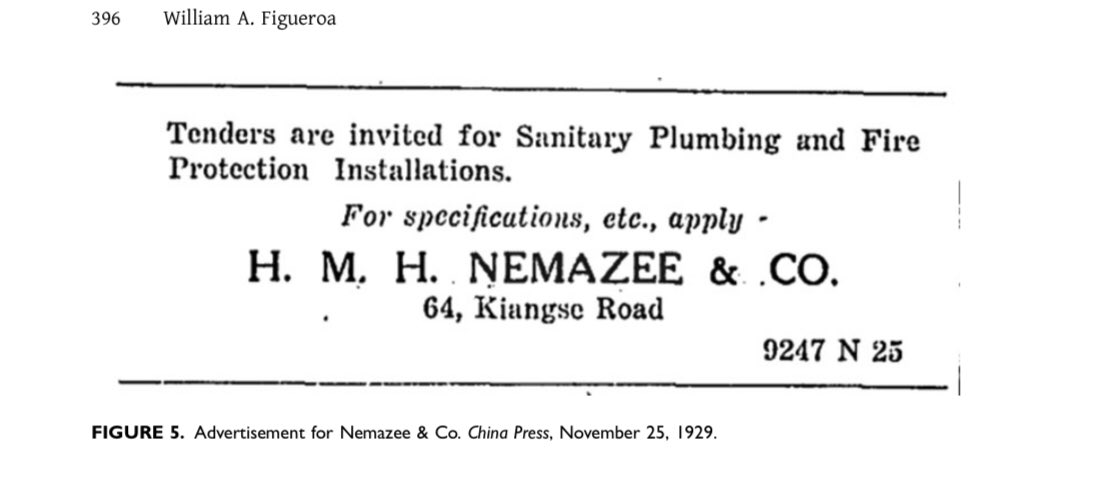Inspired by my answer on @askhistorians yesterday, I decided to share a thread about #Slavery in #China. What was slavery like in China? Who were #Chinese slaves? And how did it differ from slavery in the West?
A thread... 1/
#history #twitterstorians #HistoryMatters @AjamMC
A thread... 1/
#history #twitterstorians #HistoryMatters @AjamMC

Slavery in the sense of "coercion of labor from people who are not free to choose their fate" has a long history in China. For the most part, slaves came from various sources and were not always tied to race or ethnicity - although they sometimes were. 2/ 

Slaves could be peasants, commoners adopted into families, poor children, peasant women, eunuchs, and Chinese or non-Chinese captured in wars. Small amounts of black African slaves were brought by - and usually working under - Europeans and Arab traders. 3/ 

A contract from the #Tang dynasty (618-908) that records the purchase of a 15-year-old slave for six bolts of plain silk and five #Chinese coins. Found in the Astana Cemetery in #Turfan. 4/
#china #history #twitterstorians #slavery
#china #history #twitterstorians #slavery

Pamela Crossley “Slavery in Early Modern China”, Cambridge World Hist of Slavery: “If the essential core of slavery is the physical coercion of labor from individuals who are invisible as legal persons, a good deal of China’s social history will come under the slavery rubric." 5/ 

Yet in China, “there is no precise parallel to the Roman legal construction of slavery. The absolute legal definition of slave status, or the associations with race and culture that might have inspired an equally absolute ideal of personal or national freedom, never emerged.” 6/
Although “Chinese law and social institutions provided for instances of complete control by some people over others to whom they had no family relationship, people in China could not be reduced to res (a thing or object), because no res was defined in the law.” 7/
In fact, when the Ming empire discovered that Portuguese traders sold slaves as chattel Property, they forbade the sale of any Chinese to Portuguese traders - but tellingly did not forbid them from conducting their trade. In theory, slaves were more protected by law... 8/ 

...but in practice, being a slave often meant the same thing it meant in the West - a life of hard labor, little to no personal autonomy, and complete dependence on a superior that often committed physical and sexual abuses against those under his power. 9/ 

What kind of slavery existed? There was the ostensibly “voluntary” kind like concubinage, surrogate sons, bondsmen to noble houses, and eunuchs. While these groups could climb to great social heights, there were also laws against their rights superseding those of non-slaves. 10/ 



William Mesny wrote of slavery in 19th century Shanghai:
"Slavery exists in China, especially in Canton and Peking. I have known a male slave. He is named Wang and is a native of Kansu, living in the house of his original master's son, and with his own family." 11/
"Slavery exists in China, especially in Canton and Peking. I have known a male slave. He is named Wang and is a native of Kansu, living in the house of his original master's son, and with his own family." 11/

"He was a person of considerable ability, but did not appear to care about being free."
Sexual slavery, from concubines to prostitutes, was the most common form of bondage. Concubines could be foreign or Chinese. Of sexual slavery, Mesny writes...
12/
Sexual slavery, from concubines to prostitutes, was the most common form of bondage. Concubines could be foreign or Chinese. Of sexual slavery, Mesny writes...
12/

"Female slaves are very common all over China, and are generally called "yatou" (丫頭), female slave. Slave girls are very common in China; nearly every Chinese family owns one or more slave girls generally bought from the girl's parents, but sometimes from other parties." 13/ 

"It is a common thing for well-to-do people to present a couple of slave girls to a daughter as part of her marriage dowery. Nearly all prostitutes are slaves. It is, however, customary with respectable people to release their slave girls when marriageable." 14/ 

"Some people sell their slave girls to men wanting a wife for themselves or for a son of theirs. I have bought three different girls; two from Sichuan for a few taels each, less than fifteen dollars. One I released in Tientsin, another died in Hongkong... 15/ 

"the other I gave in marriage to a faithful servant of mine. Some are worth much money at Shanghai."
(Photo of Mesny and one of his Chinese slaves)
16/
(Photo of Mesny and one of his Chinese slaves)
16/

There were also labor contracts, similar to “indentured servitude”, that were legally negotiated in magistrate courts. Finally, a certain population of Chinese subjects could be directly enslaved and forced to work as agricultural laborers: the "base" population. 17/ 

Chinese law differentiated people by “commoner” and “base” status. Commoners were born to their status and were generally more protected by laws than “base” people. Base status could be achieved by being born with congential defects, being a prisoner of war or criminal... 18/
or by being identified as “idle”, in other words despondently poor. As Crossley writes, “Poor people generally – and the base population specifically – performed the menial, nonagricultural tasks that were popularly despised." 19/ 

They guarded the fields, slopped night-soil, pounded earth, gathered firewood, burned charcoal, and dug ditches and graves.” Only base people could be enslaved by Chinese law. In times of war or large state projects, however, mass corvee labor was common regardless of status. 20/ 

While there was no Chinese emancipation movement, the Yongzheng Emperor (r. 1722 to 1735) famously issued a series of emancipation edicts, which were targeted at reducing the number of people considered "Base" and the use of coerced labor in agriculture. 21/ 

This was part of an effort to empower and raise the status of the Qing's Chinese subjects, many of whom still saw the Qing as a conquering army. However, rather than freeing slaves, it mostly fixed situations where people had been incorrectly classified as "base." 22/ 

This was because Qing propaganda depicted the Manchus as guardians of Chinese tradition and law. They therefore set about "correcting" any deviations. In some ways, this made them "more Chinese" than the Chinese themselves, but in practice, this often meant serious reforms. 23/
Ending slavery was not a major part of the constitutionalist discourse, although it was outlawed officially in 1910. This was part of a general push towards "modernizing" Chinese law and harmonizing it with Western practice, which had already banned slavery. 24/ 

Today, the #CCP emphasizes their role in freeing serfs and peasants from effective enslavement by feudal landlords.
That's all for now! I could go on about Black "kunlun" slaves in China, but I will save that fascinating subject for another thread. Until then, a teaser...
That's all for now! I could go on about Black "kunlun" slaves in China, but I will save that fascinating subject for another thread. Until then, a teaser...

• • •
Missing some Tweet in this thread? You can try to
force a refresh








